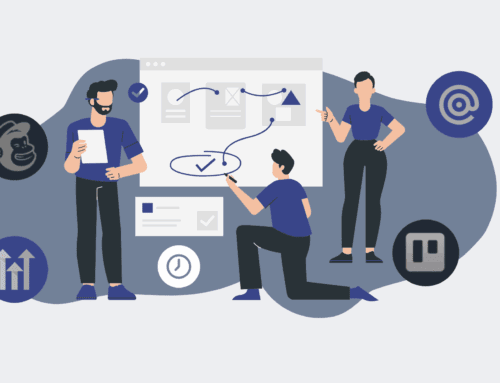The Future of Onboarding: How Automation Consultants Are Reshaping HR
The first impression is often the most lasting, and nowhere is this truer than in the onboarding process for new hires. Traditionally, onboarding has been a labyrinth of paperwork, repetitive data entry, and manual coordination, often leaving new employees feeling overwhelmed and HR teams exhausted. For high-growth B2B companies, this inefficiency isn’t just a minor frustration; it’s a significant bottleneck that stifles productivity, impacts retention, and ultimately hinders scalability. This is precisely where the strategic application of automation, guided by expert consultants, is fundamentally reshaping the HR landscape.
Consider the typical onboarding journey: a new hire accepts an offer, and immediately, a flurry of tasks ensues. Contracts need generating and signing, background checks initiated, IT equipment provisioned, access granted to various systems, and training modules assigned. Each step, if handled manually, introduces opportunities for human error, delays, and a fragmented new employee experience. These inefficiencies don’t just consume valuable HR time; they extend the time-to-productivity for new hires, delaying their contribution to the company’s bottom line.
Beyond Paperwork: A Strategic Shift
The future of onboarding isn’t about simply digitizing paper forms; it’s about a complete rethinking of the process as a strategic enabler for business growth. Automation consultants are pivotal in this transformation, moving HR leaders from a reactive, administrative role to a proactive, strategic one. Instead of viewing onboarding as a series of isolated tasks, we see it as an integrated workflow ripe for optimization through intelligent automation and AI.
At 4Spot Consulting, our approach begins with understanding the core business problem. It’s rarely about just ‘automating onboarding’ but rather about addressing challenges like high employee turnover within the first 90 days, delayed project starts due to IT setup lag, or HR teams spending 50% of their week on administrative tasks. Our OpsMap™ diagnostic is designed to uncover these specific pain points, mapping out the current, often convoluted, processes and identifying precise opportunities for automation.
The Automation Consultant’s Blueprint for Onboarding Success
An automation consultant acts as an architect for efficiency, building seamless, intelligent workflows that benefit both the new hire and the organization. Here’s how they are reshaping HR onboarding:
1. Orchestrating Seamless Workflows
Through platforms like Make.com, consultants connect disparate HR systems, CRMs (like Keap or HighLevel), payroll, and IT provisioning tools. Imagine an offer acceptance triggering a chain reaction: a profile is automatically created in the HRIS, a welcome email series is initiated, a task list for IT is generated, and all necessary documents are pre-filled and sent for e-signature via PandaDoc. This eliminates manual data entry, reduces errors, and ensures no critical step is missed.
2. Leveraging AI for Personalization and Efficiency
AI isn’t just a buzzword; it’s a powerful tool in automated onboarding. Consultants integrate AI to personalize the new hire experience. For example, AI can analyze a new hire’s role and previous experience to recommend tailored training modules or internal networks. It can also answer common new-hire FAQs, freeing up HR professionals for more complex, human-centric interactions. From AI-powered resume parsing for initial screening to intelligent chatbot support for day-one questions, AI streamlines and enhances the journey.
3. Enhancing Compliance and Security
Manual processes are inherently prone to compliance lapses. An automated onboarding system ensures every required document is collected, every policy acknowledged, and every regulatory step followed, consistently and without fail. Consultants build in robust security protocols, safeguarding sensitive employee data from the moment of collection through the entire employment lifecycle.
4. Data-Driven Insights and Continuous Improvement
One of the often-overlooked benefits of automation is the rich data it generates. By tracking every step of the onboarding process, companies gain insights into bottlenecks, completion rates, and new hire satisfaction. Automation consultants help configure these systems to provide clear dashboards and reports, enabling HR leaders to continuously refine and improve the onboarding experience, moving from anecdotal feedback to data-backed decisions.
The 4Spot Advantage: Beyond Implementation
Many businesses recognize the need for automation but lack the expertise or bandwidth to implement it effectively. This is where the strategic guidance of an automation consultant becomes indispensable. We don’t just implement tools; we integrate them within a cohesive OpsMesh framework, ensuring that every automation serves a clear business objective. Our OpsBuild process is focused on creating robust, scalable systems that deliver tangible ROI.
The impact is profound: HR teams reclaim countless hours previously lost to administrative drudgery, focusing instead on strategic initiatives like employee development and culture building. New hires experience a streamlined, professional, and welcoming entry into the company, leading to higher engagement and faster ramp-up times. For a company battling to scale, this means a recruitment and retention advantage that directly translates to competitive edge and sustained growth.
The future of onboarding is here, and it’s automated, intelligent, and strategically driven. Companies that embrace this transformation with the right consulting partner will not only save 25% of their day but also build a more resilient, efficient, and human-centric organization.
If you would like to read more, we recommend this article: Strategic HR’s New Era: The Indispensable Role of AI Automation Consultants







